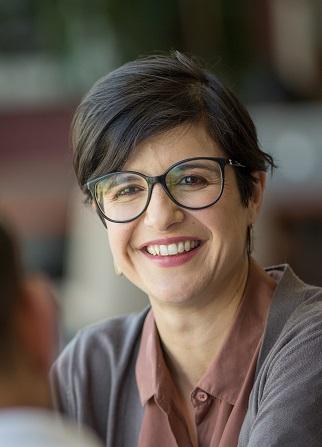
Rutgers Law Professor Sarah Dadush is leading the Principled Purchasing Project on behalf of the Rutgers Center for Corporate Law and Governance.
In an effort to better protect workers’ human rights in global supply chains, a working group formed under the auspices of the American Bar Association (ABA) Business Law Section has published a set of model contract clauses (MCCs 2.0) and a Responsible Purchasing Code of Conduct (the Buyer Code). These tools are designed to be incorporated into international supply agreements to improve the human rights performance of supply chains.
“Governments and regulators worldwide are increasingly paying attention to the issue of human rights abuses in global supply chains, and COVID-19 has put supply chains under additional public scrutiny. The EU has already taken major steps in the direction of mandating corporations doing business in the region to engage in human rights due diligence and reporting. The MCCs provide missing operational guidance for contracting against this rapidly evolving backdrop,” said Rutgers Law Professor Sarah Dadush.
The working group is led by Washington College of Law Professor David Snyder, Business Law Attorney Susan Maslow, and Dadush.
The MCCs 2.0 serve as a practical tool to help buyers and suppliers improve the human rights performance of their international supply contracts. They are an update to the clauses published two years ago to give legal counsel a model to follow in operationalizing their companies’ human rights policies. Together, the MCCs 2.0 and the Buyer Code address the fact that human rights violations at the supplier level are often rooted in the buyers’ own purchasing practices, particularly unfair timing demands, pricing pressures, poor forecasting, last-minute order modifications, and irresponsible exits.
Snyder, Chair of the Working Group, emphasizes the practical nature of the project, “Contracts are how businesses implement their policies. The MCCs allow companies to make human rights policies into operational commitments.”
Likewise, Vijaya Palaniswamy, Partner at the global law firm Linklaters, which provided pro bono legal assistance to develop the MCCs 2.0, adds, “Linklaters is proud to be involved in this important work. Accountability for human rights violations within supply chains is rapidly evolving and the MCCs can provide a framework for companies to implement policies in a way that is both legally effective and operationally likely.”
The MCCs 2.0 are the first model contract clauses to integrate “human rights due diligence” principles into every stage of the buyer-supplier relationship. They seek to translate the principles contained in the UN Guiding Principles on Business and Human Rights (UNGPs) and the Organization for Economic Co-operation and Development (OECD) Due Diligence Guidance into contractual obligations that require buyer and supplier to cooperate in protecting human rights. They make both parties responsible for the contract’s human rights performance.
Bearing in mind that companies are in different places with respect to their readiness to undertake human rights commitments, the MCCs 2.0 use a fully modular approach. This method allows companies to select among and adapt the MCCs so as to reflect their industry-specific needs, exposure to human rights risk, and institutional objectives. In addition to helping align contracts with human rights due diligence principles, the MCCs can also be used to advance broader environmental, social, and governance (ESG) goals.
Here is the MCCs 2.0 toolkit.
The Principled Purchasing Project led by Dadush is run out of the Rutgers Center for Corporate Law and Governance. The Project team includes Olivia Windham Stewart, Business & Human Rights Specialist, John Sherman, General Counsel at Shift (acting in his personal capacity), and a team of lawyers acting pro bono publico from Linklaters LLP in New York. The Project is further supported by a generous grant from the Laudes Foundation.
Dadush commented that “Rutgers is the ideal home for the Principled Purchasing Project because of our strong institutional commitment to promoting social justice, both domestically and internationally. Better contracts and contractual practices can generate better human rights outcomes. Practical solutions like the MCCs can result in real improvements in the lives of real people, no matter how complex the supply chain.”